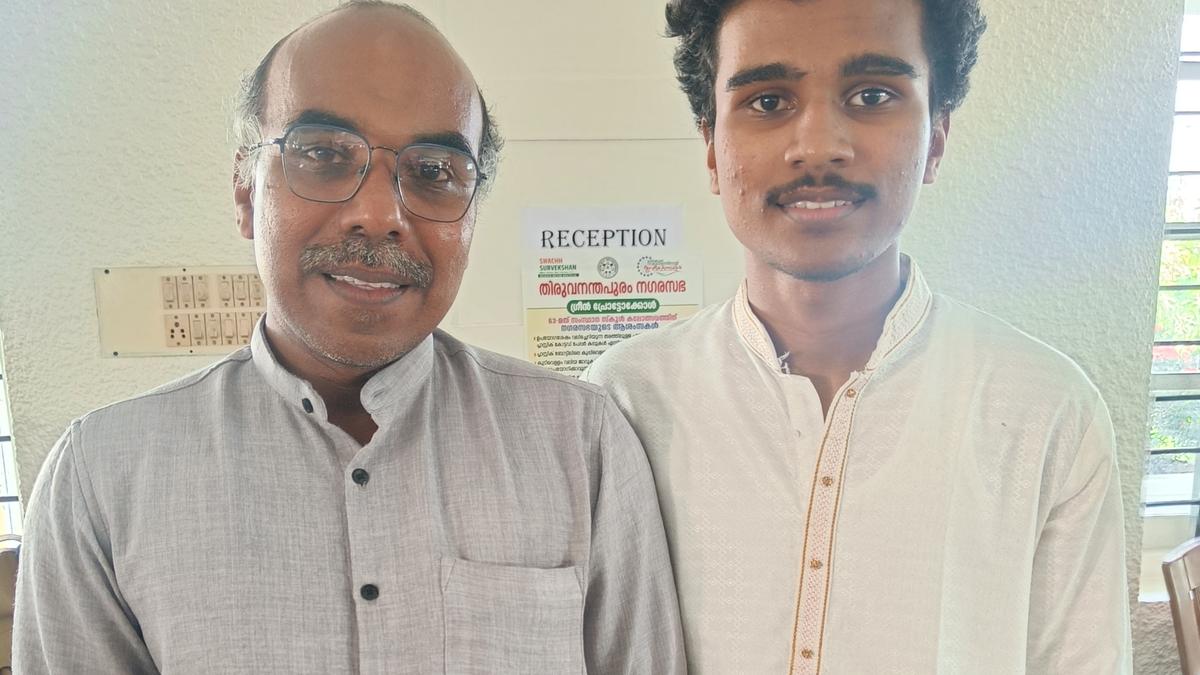
Kerala State School Arts Festival | YouTube is now guru for ghazals too
The Hindu
Eleven years after ghazal competition was introduced at the festival, the standards have vastly improved, with 16 of the 17 contestants securing A grades
All the little nuances of ghazal, as well as the Urdu language in which it is sung, are hard to master even if one has an experienced teacher to help out. But, Sayed Aban, a student of the MJ HSS, Elettil, in Kozhikode district mastered it through YouTube. Not just that, he picked up harmonium lessons too from YouTube during the COVID-19 period. In the Urdu Ghazal competition for the HSS category at the State School Arts Festival, he was one of the two competitors who played along the harmonium while singing, P.J. Sarga of Ernakulam district being the other one.
“I’ve been surrounded by ghazals from younger days since my father Muhammed Basheer is a huge ghazal fan. Just like him, I started singing along to songs of Ghulam Ali and others, and slowly became better at it,” says Aban, who was easily one of the best singers of the day, with his rendition of Roshan Jamaal Yaar, written by freedom fighter Hasrat Mohani and made popular through Mehdi Hassan’s rendition.
Eleven years after the ghazal competition was introduced at the festival, the standards have vastly improved, with 16 of the 17 contestants securing A grades. The young competitors seemed to have an understanding of the complex emotions in these songs, much beyond the grasp of their young ages, and expressed them without losing its essence. Unlike previous years, when some competitors had banked on their Shruthi boxes for support, most of them now have accompanying artists on tabla and harmonium.
Like in the previous years, competitors preferred to sing evergreen ghazals written in 18th and 19th centuries, from Delhi’s own Dagh Dehlvi’s Ajab Apna Haal Hota to Mughal emperor Bahadur Shah Zafar’s Baat Karni Mujhe Mushkil and Mirza Ghalib’s Bas Ki Dushwar Hai. However, there were a few who preferred the more recent ones like Qateel Shifai’s Yeh Mojiza Bhi Mohabbat Kabhi Dikhaye and Abdul Hai Anjum’s Dard Ke Rishtey, made popular by Hariharan. Disproving the claim that many students learn niche arts for grades, quite a few of these students are regular ghazal performers at outside venues too.













